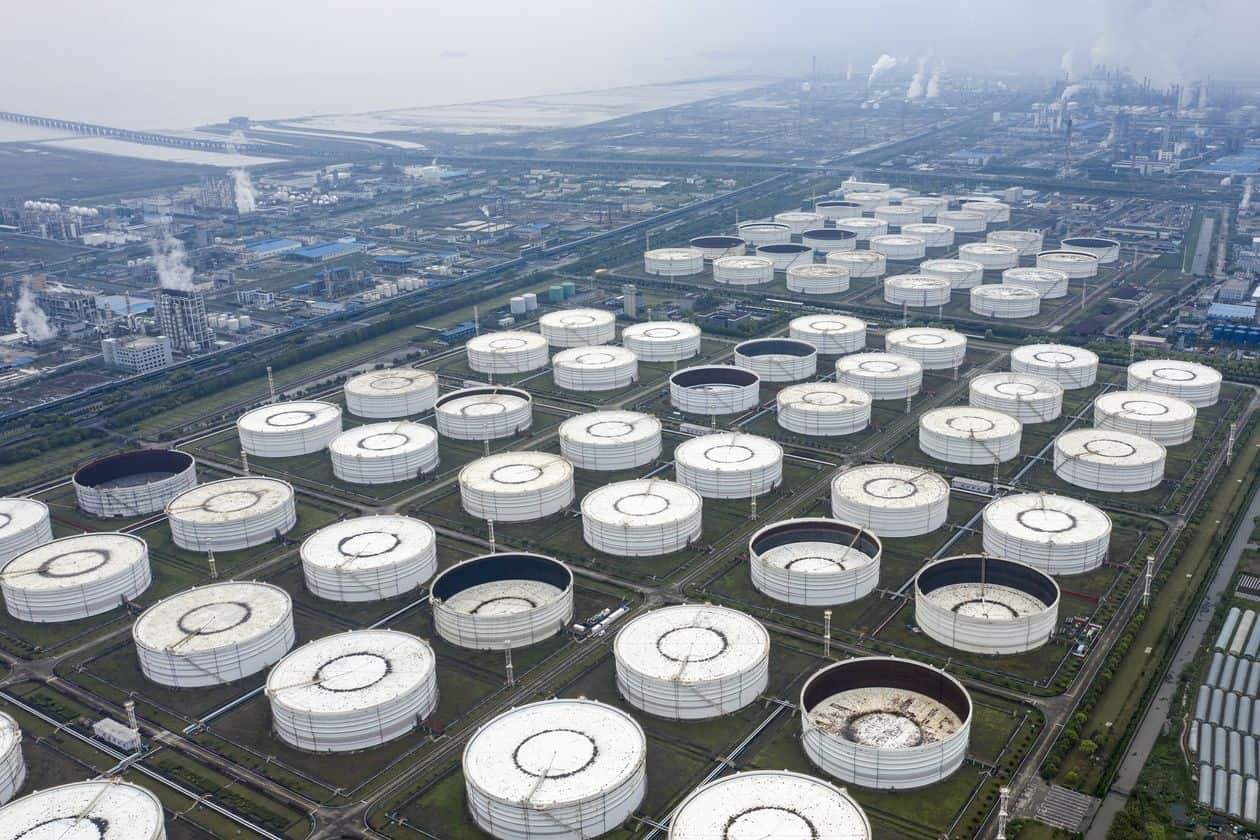Asia’s Oil-Consuming Nations Add to Stockpiles Thanks to Bargain Prices

Like shoppers encountering a bargain on toilet paper at a warehouse store, Asia’s oil consumers are beginning to stock up on oil at rock-bottom prices for their national reserves. Their only problem is finding more closet space.
China, India, South Korea and Australia are taking steps to boost their national stockpiles of oil used to safeguard domestic industries during times of crisis, after oil prices fell to historically low levels. Since those nations collectively have hundreds of millions of barrels of spare capacity, analysts say their demand could help stabilize the oil market in coming months.
Oil prices recovered on Thursday after the price on one futures contract hit negative territory on Monday, but prices are still down by about two-thirds since the beginning of the year.
In China, state-owned oil companies won approval this month from the Shanghai International Energy Exchange for seven expansion projects capable of holding 26 million barrels combined. They were the first such applications since October, suggesting a rush to increase capacity in response to the plunging oil price.
“Now is a golden opportunity for large consuming nations in Asia that have always been intent on increasing their petroleum reserves,” said Sushant Gupta, a director at energy research company Wood Mackenzie.
As coronavirus-related shutdowns cripple private demand, “the crude oil floating around in the market today is very likely to find its way into strategic petroleum reserves in Asia,” Mr. Gupta said.
For Asia’s leading industrial powers—China, Japan and South Korea—reliance on oil imported from distant nations has long been seen as a major vulnerability. Japan experienced the fear first in its “oil shock” of 1973-74 prompted by an Arab embargo. It has built up a war chest of nearly seven months’ supply.
Others are less prepared.
India plans to fill up its 39 million barrel strategic oil reserves to the limit by the middle of May, according to an official at the ministry of petroleum and natural gas. Even then, it would have only 10 to 11 days of supply, said Amit Bhandari, a fellow at Gateway House, an Indian council on global relations.
Wood Mackenzie estimates that India has a little more than 10 million barrels of space left in its reserves.
Australia’s government said Wednesday it would establish its first government-owned oil reserves for domestic fuel security, spending about $59 million. “The new measures will take advantage of the current low prices for oil,” said energy minister Angus Taylor.
But Mr. Taylor said the reserves would initially be stored in the U.S. because Australia’s facilities are full.
China, too, is beginning to near its limits. Wood Mackenzie estimates the country’s strategic reserves will hit 90% of capacity, or about 1.15 billion barrels, by the end of this year. That is enough to cover 80 days of demand based on the 2020 forecast by Platts Analytics.
In China, oil demand declined 12% in the first three months of 2020 compared with the same period a year earlier, according to Platts, as the Chinese economy shrank for the first time in four decades. Even so, its crude oil imports increased 5% on year during the first quarter, according to data provider Wind.
Oil equivalent to roughly a sixth of total imports was channeled into the Chinese national stockpile, which grew at a rate of 2.1 million barrels a day in the January to March period, according to the International Energy Agency.
Major oil exporters are counting on rising national-stockpile purchases, along with major cuts to oil production, to prop up prices. Saudi Arabia’s energy minister said this month he expected 200 million barrels to be purchased for strategic petroleum reserves in the coming months.
National stockpiles are also getting a boost from refiners looking to move their excess oil into national sites. South Korea’s government is lowering rent for companies willing to store their inventories and reserves at public tanks. But as the government also boosts its own reserves, this is leading the country’s storage capacity to quickly dwindle.
The IEA, a club that includes many leading oil-consuming nations, obligates member countries to hold emergency oil stocks equivalent to at least 90 days of net oil imports. India and China aren’t IEA members.
Japan is the exception among the buyers: It already has enough oil and doesn’t plan to increase national reserves soon, said an industry ministry spokesman.
Photo: Oil storage tanks on the outskirts of Ningbo, Zhejiang province, China, on Wednesday. - QILAI SHEN/BLOOMBERG NEWS











